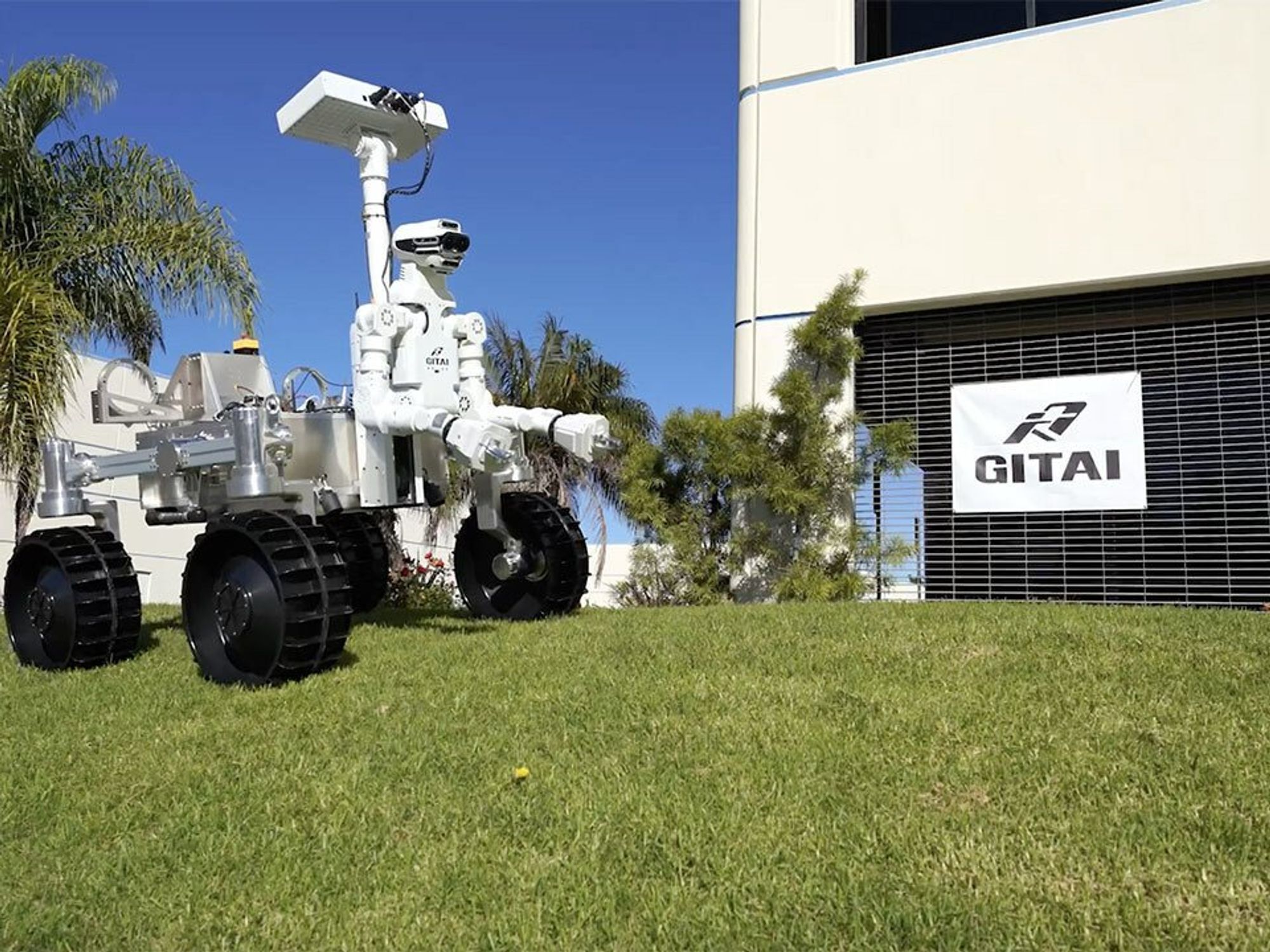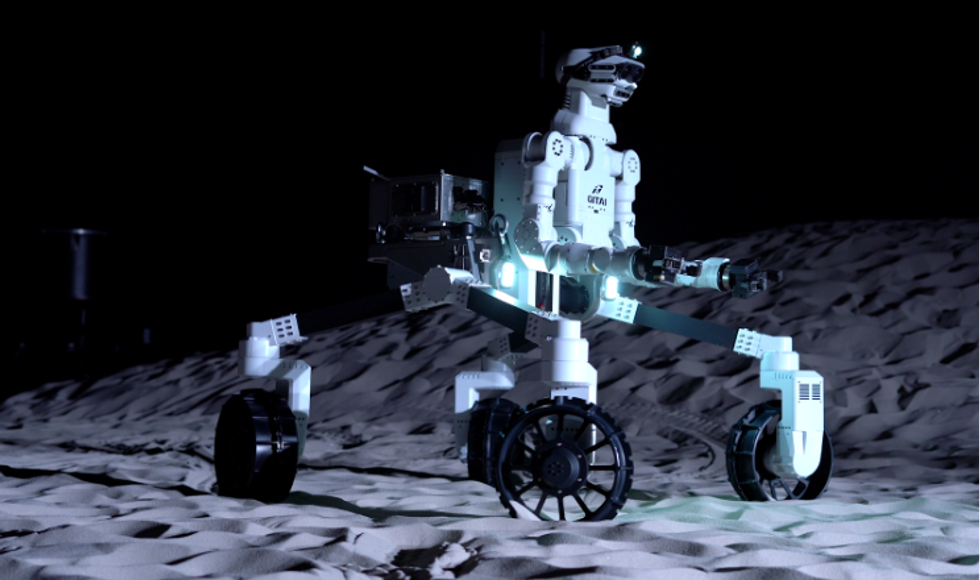The Robotics Company Building Construction Bots for Space
Samson Amore is a reporter for dot.LA. He holds a degree in journalism from Emerson College. Send tips or pitches to samsonamore@dot.la and find him on Twitter @Samsonamore.

One of the space industry’s long-term goals beyond landing humans back on the Moon and other planets is to create an infrastructure in space that can house a number of people living and working in orbit. But there’s one problem with this ambition: building in space is both costly and extremely dangerous.
The easiest solution, rather than risking human life to build out space systems architecture, is to send up robots capable of handling it for us. Gitai, a relatively new entrant into Los Angeles’ space ecosystem, wants its industrial bots to be a key part of settling the final frontier. In the future, these robots could be responsible for maintaining not just satellites and space stations, but also bases and maybe one day entire colonies on other planets.
Gitai is a Japanese company, founded by CEO Sho Nakanose in 2016. In December 2022 the company took up office in Torrance, and now employs roughly 50 people in the region. These people are diligently working on constructing Gitai’s two main products – a robotic arm and hand, and specialized lunar rovers.
Robotic arms are widely used in automated manufacturing, and just like on Earth they can serve a wide range of purposes in space. Nakanose said the arms and their “hands” can hold a variety of tools and handle tasks including solar panel assembly to provide power to spacecraft, repairs, transferring payloads, and helping spacecraft dock.
The robotic arm was tested on the International Space Station in October 2021. Gitai sent a version of its autonomous space robot arm to the ISS and installed it inside an airlock, where the arm conducted various tests including operating switches and cables and assembling panels.
And recently, the R1 lunar rover was put to the test on Earth. Gitai brought the R1 rover out to the desert (on Earth, about the closest simulation we can get to moon terrain) to continue testing its function. It successfully installed solar panels, placed an antenna at a high place, welded a panel and towed equipment during that test. It was also able to successfully mine materials in a test of its excavation abilities, which will be particularly valuable as the U.S. increasingly looks to mine in-space minerals.

Nakanose noted that as the competition between China and the U.S. heats up, it’ll also accelerate the existing global space race. He argued that whichever country conquers space construction first with robotics will have a clear advantage. “The conflict between the U.S. and China may escalate because of space resources on the moon,” he predicted. “Now is the time to expand our presence, expand our habitat.”
Another in-space demonstration of Gitai’s robotic arm will happen on board the ISS within this year. Nakanose said he expects that launch to happen by the fall.
“Their main purpose of assembly of solar panels is not for the ISS, but for the lunar surface, for the moon and Mars surface,” Nakanose said. “Now major U.S. space companies are looking for such a capacity to build solar panels for communication antennas or even habitation modules.”
Nakanose added that “it’s very difficult for human astronauts to conduct these operations because the lunar surface is very dangerous and it’s so expensive.” Gitai’s robots, he argued, “allow us to conduct these operations without human risk.”
Gitai doesn’t launch its own technology into space. With limited funding – about $17 million raised to date – the company instead relies on launch partners. It has a deal with Houston, Texas-based airlock and small satellite research payload company Nanoracks to send its robots up instead.
Nakanose said that Gitai received its first purchase order from a “major local space company” in Los Angeles, but wouldn’t disclose who that customer is. The plan is to court more companies looking to establish bases off-Earth as well as firms operating commercial space stations.
There is one slight wrinkle in Gitai’s business plan, for now. Since the company’s not headquartered in the U.S., it can’t compete for government funding or contracts – a lucrative and crucial income stream. Nakanose said his plan is to re-incorporate as an American company “in a few years.” But, in the meantime, there’s a workaround. NASA routinely farms out contracts to tech companies like SpaceX that often then need to issue their own work orders to meet objectives. So, even if Gitai can’t work with NASA directly, it technically could still accept future contracts from a third-party company.
- The Latest Casualty of Generative AI? Animators ›
- Meet the Robot Baby Whisperer ›
- Two Months After Robots Were Introduced Into Nursing Homes, Residents Can't See Them Leaving: 'We'd Be Screwed' ›
- Robot Bartenders, Space Construction and a Weight Loss App: Highlights From Techstars’ LA Demo Day ›
- Gitai Raises $30 Million to Continue Robotics Developments - dot.LA ›
Samson Amore is a reporter for dot.LA. He holds a degree in journalism from Emerson College. Send tips or pitches to samsonamore@dot.la and find him on Twitter @Samsonamore.





 Image Source: Skyryse
Image Source: Skyryse